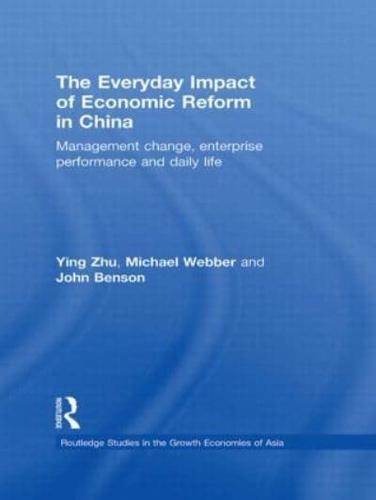Publisher's Synopsis
During the past 30 years, China has undergone extensive economic reform, replacing the government's administration of enterprises with increasing levels of market-oriented enterprise autonomy. At the heart of the reform are changes in the employment relationship, where state control has been superceded by market relationships. These reforms have had far-reaching implications for many aspects of everyday life in Chinese society. This book appraises the impact of the economic reforms on the employment relationship and, in turn, examines the effects on individual workers and their families, including salaries, working conditions and satisfaction, job security and disparities based on location, gender, age, skill, position and migrant status. In particular, it focuses on how changes in the employment relationship have affected the livelihood strategies of households. It explores the changing human resource management practices and employment relations in different types of enterprises: including State-Owned Enterprises, Foreign-Owned Enterprises and Domestic Private Enterprises; throughout different industries, focusing especially on textiles, clothing and footwear and the electronics industry; and in different regions and cities within China (Beijing, Haerbin, Lanzhou, Hangzhou, Wuhan and Kunming). Overall, this book provides a detailed account of the everyday implications of economic reform for individuals and families in China.











